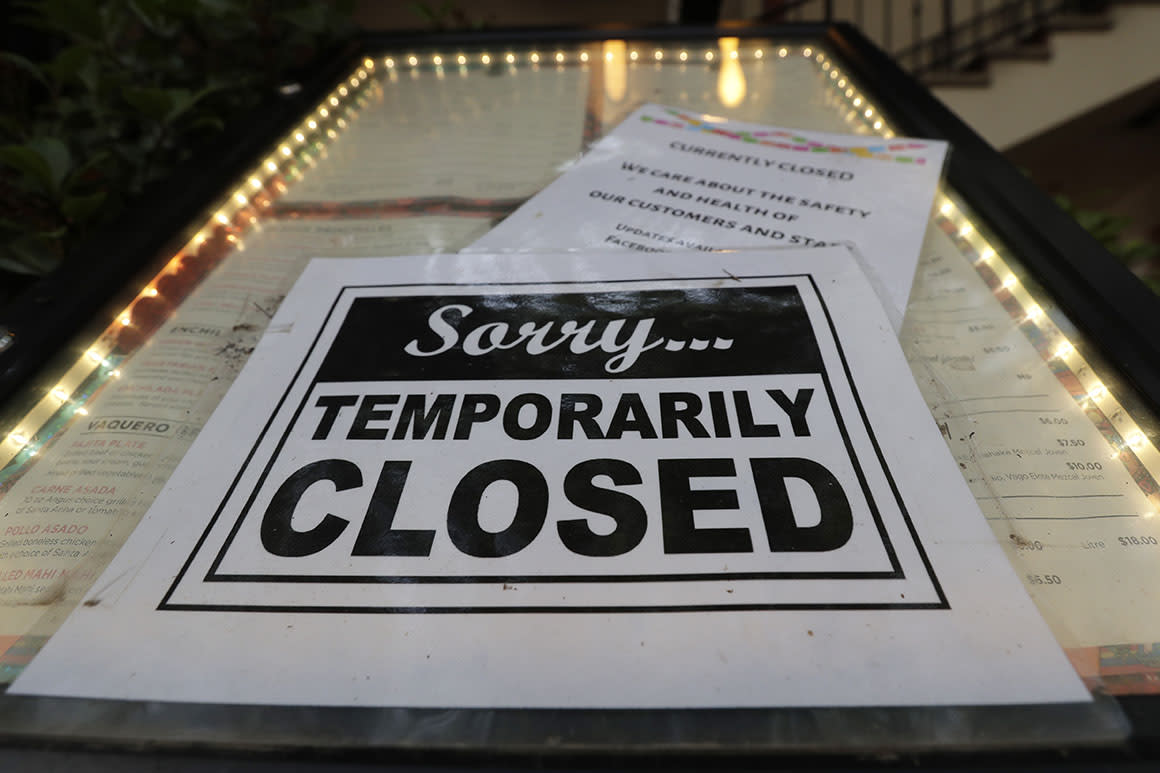Watchdog warns SBA that loan limits will hurt small business borrowers

The government watchdog responsible for policing the Small Business Administration warned in a report Friday that the agency's restrictions on emergency small business loans may hurt tens of thousands of borrowers.
SBA Inspector General Hannibal "Mike" Ware shared his concerns in his office's first report on the Paycheck Protection Program, which Congress created in March to help small businesses and their employees survive the shutdowns triggered by the coronavirus. The program allowed lenders to issue low-interest loans that can be forgiven if businesses agree to maintain their payrolls.
But in the new report, which came at the request of Senate Minority Leader Chuck Schumer and other Democrats, Ware said the SBA veered from the law Congress drafted to create the program when the agency set rules for how businesses could obtain loan forgiveness.
The SBA set stricter limits, requiring that businesses spend at least 75 percent of the loan on payroll to get full loan forgiveness — a restriction that was absent from the law — and that borrowers pay back any remaining proceeds within two years, rather than the 10-year time frame lawmakers allowed. The inspector general said tens of thousands of borrowers would not meet the 75 percent payroll threshold.
"SBA’s requirements could result in an unintended burden to the borrowers," the inspector general said.
SBA spokesperson Jim Billimoria declined to comment on the report.
The report's findings will ratchet up already growing pressure on the Trump administration and Congress to retool the program to make it more flexible, amid rising concern that businesses are fearful of using the money because of the SBA's forgiveness restrictions. Treasury Secretary Steven Mnuchin has resisted calls to ease the limits.
“The Inspector General’s review makes clear that the Trump administration must immediately fix the Paycheck Protection Program to help the truly small businesses that have so far not received the help they need," Schumer said. "SBA must do more to stop the special treatment for well-connected big business at the expense of legitimate small business struggling to stay afloat and support their workers during this pandemic.”
In the report, Ware recommended that the SBA "evaluate the potential negative impact to borrowers" regarding the percentage of loan proceeds eligible for forgiveness and update the requirements as necessary.
"It may be important to consider that many small businesses have more operational expenses than employee expenses," he said.
In addition, Ware said the SBA, which crafted its rules with Treasury, did not provide guidance mandated by Congress about making a priority of small businesses in underserved and rural markets — a lingering concern among lawmakers as Congress considers how to revamp the program.
He recommended that the SBA issue guidance to lenders requiring them to focus on those borrowers and to revise the program's application to ensure the collection of demographic information.
"Because SBA did not provide guidance to lenders about prioritizing borrowers in underserved and rural markets, these borrowers, including rural, minority and women-owned businesses may not have received the loans as intended," he said. "In addition, because SBA did not require demographic data to identify PPP borrowers in underserved markets, it is unlikely that SBA will be able to determine the loan volume to the intended prioritized markets."

